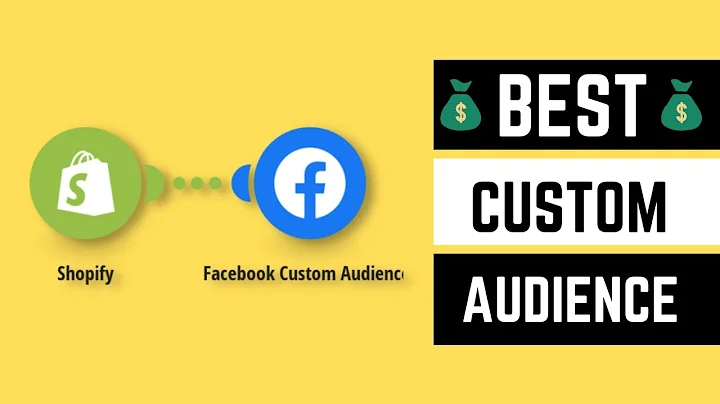Shopify vs WooCommerce: Which is the Best E-commerce Platform?
Table of Contents
- Introduction
- Pros and Cons of Shopify
- Pros and Cons of WooCommerce
- Comparison of Features
- 4.1 Templates and Design
- 4.2 Ease of Use
- 4.3 Add-ons and Integrations
- 4.4 Customer Support
- 4.5 Loading Speed
- 4.6 Cost
- 4.7 Customization Options
- 4.8 Security and Stability
- 4.9 Transaction Fees
- 4.10 Technical Difficulties
- Other E-commerce Platforms
- 5.1 Squarespace
- 5.2 Wix
- 5.3 Big Cartel
- 5.4 Amazon
- Conclusion
Shopify vs WooCommerce: Choosing the Right E-commerce Platform
When it comes to building an online store, choosing the right e-commerce platform is crucial. Two of the most popular options in the market are Shopify and WooCommerce. In this article, we will dive deep into the pros and cons of both platforms, compare their features, and help you make an informed decision. Whether you are starting a new online business or looking to switch platforms, this comprehensive guide will provide you with the necessary information to choose between Shopify and WooCommerce.
Pros and Cons of Shopify
Shopify has established itself as one of the leading e-commerce platforms, serving over 1.7 million merchants worldwide. Here are the key advantages and disadvantages of using Shopify for your online store.
Pros:
-
Wide User Base: Shopify is the second-largest e-commerce platform, with millions of merchants using it. Its popularity speaks for itself, as it has generated over $183 billion in sales.
-
Professional Templates: Shopify offers a range of visually appealing and professional templates for your online store. These templates are designed to enhance the overall look and feel of your website, providing a polished and professional online presence.
-
Ease of Use: Shopify is known for its user-friendly interface, making it easy for even beginners to create an online store. With intuitive drag-and-drop features, you can set up your Shopify store in as little as four minutes.
-
Extensive App Store: Shopify boasts a vast app store, offering a wide range of professional add-ons and integrations. These apps enhance the functionality of your store, allowing you to customize and optimize various aspects of your online business.
-
Customer Support: Shopify provides 24/7 customer support, ensuring that any issues or concerns you may have are promptly addressed. This reliable support system gives you peace of mind, knowing that assistance is readily available.
-
Faster Loading Speed: Shopify websites load faster on average compared to WooCommerce. This is crucial for customer satisfaction, as slow-loading websites can deter potential buyers and lead to higher bounce rates.
Cons:
-
Higher Cost: Shopify plans start at $29 per month, making it more expensive than WooCommerce. Additionally, Shopify's premium templates and add-ons come at a higher price, potentially increasing your overall expenses.
-
Expensive Add-ons: While Shopify offers a wide range of professional apps and integrations, they tend to be more expensive compared to WooCommerce. The developers assume that Shopify users have a larger budget, leading to higher prices for these additional features.
-
Transaction Fees: Shopify charges transaction fees if you choose to use a third-party payment gateway. You can avoid this fee by using Shopify Payments, but that might not be available in all countries. These fees can add up, especially for businesses with high sales volumes.
-
Reduced Customization Options: Shopify locks down certain features to ensure stability and prevent users from accidentally breaking their stores. While this makes Shopify more stable and reliable, it limits the level of customization compared to WooCommerce.
Pros and Cons of WooCommerce
WooCommerce is an open-source plugin built for WordPress that allows you to turn your website into a fully functioning e-commerce store. Here are the pros and cons of using WooCommerce for your online business.
Pros:
-
Largest E-commerce Platform: WooCommerce is the most widely used e-commerce platform globally, powering over 6.5 million websites. With a massive market share of 36%, it offers a robust and reliable solution for online businesses.
-
Customization Options: WooCommerce provides unparalleled freedom when it comes to customizing your online store. As a plugin for WordPress, it allows you to take full control over your website's design and functionality, making it highly customizable.
-
Ownership and Control: With WooCommerce, you have complete ownership and control over your website. Unlike Shopify, where Shopify itself hosts your store, WooCommerce empowers you to host your website, eliminating the risk of sudden shut-downs.
-
Free and Open-Source: The WooCommerce plugin itself is free to use, making it a cost-effective choice for budget-conscious sellers. However, you will need to pay for hosting and other add-ons, which is still likely to be more affordable in the long run compared to Shopify.
Cons:
-
Technical Difficulties: WooCommerce generally requires more technical expertise and maintenance compared to Shopify. With multiple plugins and customizations, there is a higher likelihood of encountering technical difficulties that may require troubleshooting.
-
Additional Add-ons Required: WooCommerce may require more add-ons and integrations compared to Shopify to achieve the desired functionality. This can make the initial setup more complex and time-consuming.
-
Credit Card Fees: While WooCommerce doesn't charge transaction fees directly, you will still have to pay processing fees to payment gateways such as Stripe or PayPal. However, WooCommerce provides more flexibility in choosing your payment gateway, potentially allowing you to find better rates.
-
Security and Stability: As WooCommerce allows extensive customization, there is a greater risk of security vulnerabilities if not properly maintained. Regular updates and security measures are essential to keep your website secure.
Before Final Conclusion Added FAQs Q&A













